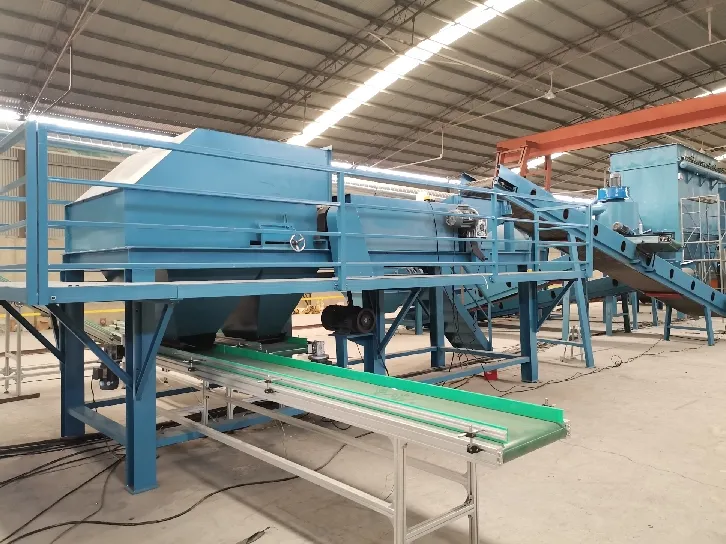

dec . 10, 2024 07:29 Back to list
The Importance of Aluminum Recycling Plants
Aluminum recycling plants play a vital role in waste management and environmental sustainability. With the increasing demand for aluminum in various industries, the need for effective recycling processes has never been more critical. This article explores the significance of aluminum recycling plants, their operational processes, and their impact on both the economy and the environment.
Aluminum is a lightweight, durable metal widely used in everything from packaging to automotive manufacturing. It is estimated that about 75% of all aluminum ever produced is still in use today, highlighting the material's longevity and recyclability. However, the production of new aluminum from raw materials, such as bauxite ore, is energy-intensive and contributes significantly to greenhouse gas emissions. In contrast, recycling aluminum requires only about 5% of the energy needed for primary production, making it an environmentally friendly alternative.
Aluminum recycling plants operate by collecting aluminum materials from various sources, including beverage cans, industrial scrap, and construction waste. Once collected, these materials undergo a series of processes to ensure they can be reused effectively. The first step typically involves sorting, where different types of aluminum are separated from non-aluminum materials. This sorting process is crucial as it directly affects the quality of the recycled aluminum product.

After sorting, the aluminum scraps are cleaned to remove any residues such as labels, coatings, or contaminants. Once cleaned, the aluminum is shredded into smaller pieces, known as chips, which facilitate easier melting. The next stage involves melting the aluminum in large furnaces, where it is transformed into molten metal. This molten aluminum can then be cast into new products, such as sheets, extrusions, or even new cans, ready to re-enter the manufacturing cycle.
The benefits of aluminum recycling plants extend beyond the immediate environmental impacts. They contribute significantly to the economy by creating jobs and stimulating local economies. According to industry reports, recycling operations can provide numerous employment opportunities, from plant operation to logistics and management. Additionally, these plants can generate a substantial amount of revenue through the sale of recycled aluminum, benefiting both the local and national economy.
Furthermore, the establishment of aluminum recycling plants aligns with global sustainability goals. As nations strive to reduce carbon footprints and promote circular economies, recycling practices become increasingly vital. By recycling aluminum, we decrease the demand for virgin materials, thus alleviating the environmental burdens associated with mining and processing raw resources.
In conclusion, aluminum recycling plants are indispensable to modern waste management and sustainability efforts. They not only conserve energy and resources but also contribute to economic growth and job creation. By fostering a culture of recycling and sustainability, we can ensure that aluminum remains a vital resource for future generations. It is essential for communities, industries, and governments to support and invest in these recycling facilities, solidifying their commitment to a healthier planet and a more sustainable economy. By emphasizing the importance of recycling practices, we can collectively pave the way toward a more sustainable and environmentally friendly future.
Latest news
Troubleshooting Common Eddy Separator Problems
NewsJul.04,2025
The Role of Metal Recycling Plants in Circular Economy
NewsJul.04,2025
The Impact of Recycling Line Pickers on Waste Management Costs
NewsJul.04,2025
Safety Features Every Metal Shredder Should Have
NewsJul.04,2025
How Industrial Shredders Improve Waste Management Systems
NewsJul.04,2025
How Cable Granulators Contribute to Sustainable Recycling
NewsJul.04,2025